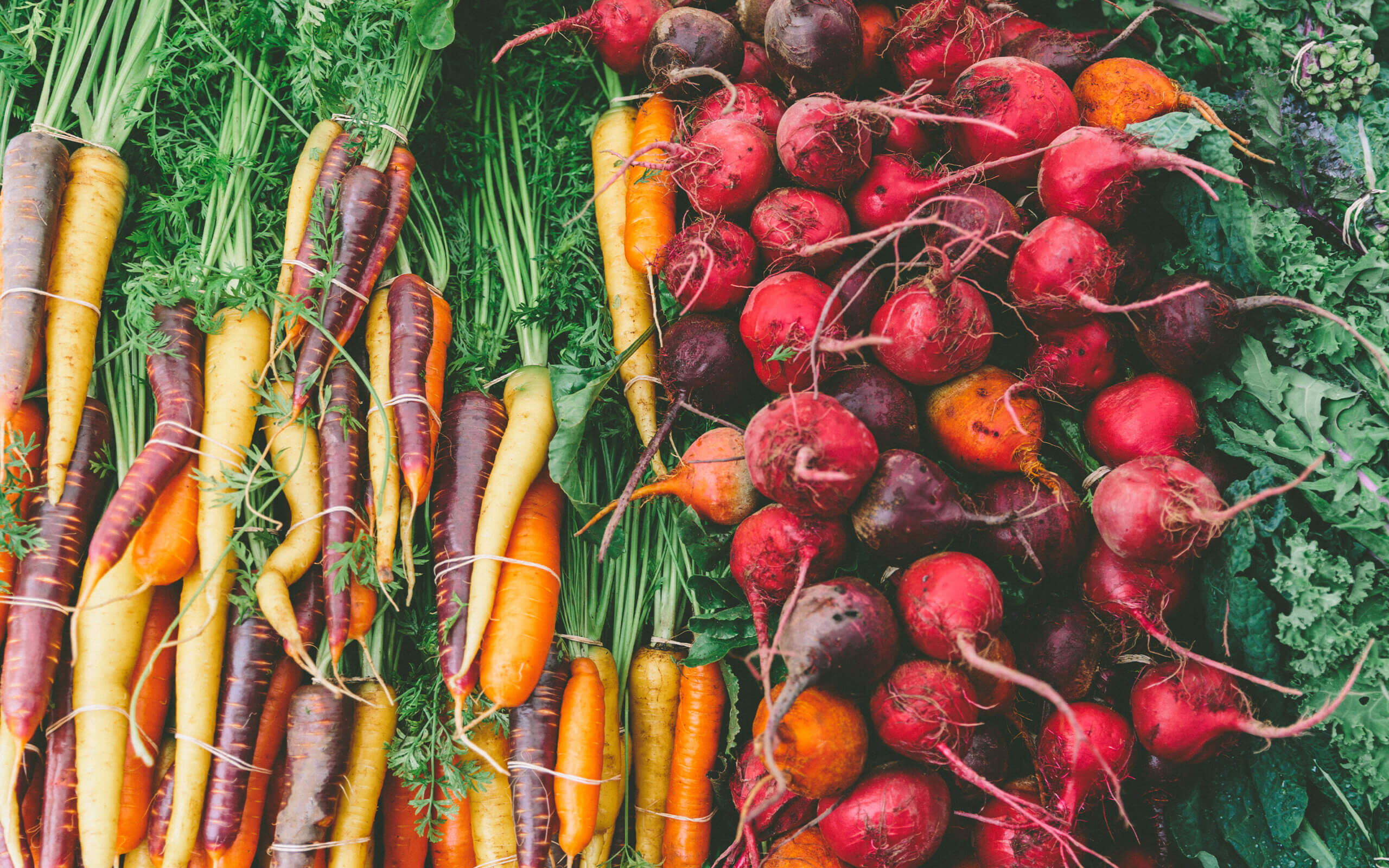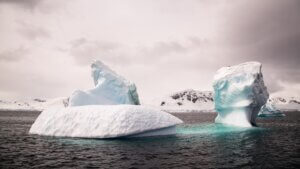Enthusiasm for plant-based meals is at an all-time high. Plant-based diets are now twice as popular as in 2015, and it doesn’t show any signs of slowing down.[1] With the variety of plant-based food and beverage options out there, we can have a huge positive impact and do our part to save the planet by simply choosing plant-based meals when possible.
“If everybody were to stop using oil and gas entirely we would see these effects in a 100 years or so. But if everybody were to go plant-based, we would see these effects within decades.” – Professor Kirk R. Smith, University of California Berkeley.
Here is how a plant-based diet can help save the planet we call home:
Plant-based meals reduce land use
A common question asked with regards to plant-based protein alternatives is whether they lead to deforestation to clear room for the crops used to produce such products. However, animal protein requires far more land, and therefore also deforestation, than plant-based alternatives. Farmed animals intended for human consumption are fed enormous amounts of grass, corn and grains. As a result, 30% of the land surface of the planet is used for croplands and pastures.[2] If we switch to a plant-based diet, we have the potential of reducing global land use by 76%.[3] Just imagine how much of the earth can be restored. Natural habitats could recover and animal species would return.
We could feed exponentially more humans by choosing plant-based meals
Annually, 1 billion tons of grains are fed to farmed animals. This amount of grain could feed 3 billion people.[4] Red meat supply is a staggering 568% higher than required, while vegetables, nuts, fruits and seeds are in short supply.[5] So it’s clear that moving towards a plant-based diet will free up resources that could feed more humans. Crops like corn, oats, soy and barley contain invaluable nutrients for humans, like carbohydrates, protein and fiber. They can be eaten directly or used to make other foods. For example, Good Catch uses a six-legume blend of peas, chickpeas, lentils, soy, fava beans and navy beans to make delicious plant-based seafood. This means we can have the eating experience of enjoying seafood by utilizing the harvest from the crops, instead of feeding the plants to animals and then eating the animals.
Plant-based meals requires a lot less water
There is a growing body of scientific evidence showing that a plant-based diet is the most sustainable way to eat. For instance, if we switch to a plant-based lifestyle we can reduce freshwater use by 19%.[6] Water is the basis for all life on earth, yet freshwater is in short supply. Only 3% of earth’s water is fresh, and 2.5% of this water is unavailable, locked up in glaciers, ice caps, the atmosphere and soil.[7] At the moment, we use vast amounts of water for farm animals and to irrigate the crops fed to these animals. Additionally, animal agriculture leads to pollution of water sources through runoff of animal waste. Luckily, nowadays plant-based meals offer the experience of meat and fish, while also preserving the freshwater sources. No sacrifices required.
A plant-based diet reduces greenhouse gas emissions
Animal agriculture leads to deforestation, which means that the trees that once stored carbon and released oxygen, can no longer reduce CO2 in the atmosphere. At the same time, farm animals produce a lot of waste that releases methane, a gas far more potent than CO2. A new report accounts that at least 87% of annual greenhouse gas emissions can be traced back to animal agriculture.[8] Another study concluded that switching to a plant-based diet can reduce greenhouse gas emissions by 49%. In the U.S, where the consumption of meat is three times the global average, the potential for reducing emissions is as high as 73%.[9]
Opting for plant-based seafood is great for you and the ocean
We commonly hear that the Amazon rainforests are the lungs of the earth. Yet it is the oceans that account for 54% of the world’s oxygen production thanks to the marine phytoplankton. Additionally, the seas regulate the climate on the planet. Without the oceans, the temperatures could exceed 200 degrees![10] Unfortunately, the fishing industry is having a profound impact on the ocean’s health. Overfishing, bycatch and discarded fishing lines and nets are affecting fish populations. 70% of the microplastics in the oceans are fishing related. Additionally, half of the fish caught by the fishing industry is used in feed for farmed animals.[11]
So why not enjoy your meals without all of the earth-impacting side effects? Good Catch believes that plant-based foods can feed and help save the world. We don’t need to wait for governments to reallocate the trillion dollars in global agricultural subsidies. We can make a difference by what we choose in the supermarket and at restaurants, and that is an empowering and hopeful feeling.
[1] “Interest in veganism hits all-time high in 2021, Google trends report shows”, VegNews, vegnews.com/2020/9/interest-in-veganism-hits-all-time-high-in-2020-google-trends-report-shows
[2] “How will we feed the ever-growing human population?”, Faunalytics, faunalytics.org/how-will-we-feed-the-ever-growing-human-population/
[3] Poore, J.; Nemecek, T. (2018). Reducing food’s environmental impacts through producers and consumers. Science, 360(6392), 987–992
[4] “How to feed 3 billion extra people — without trashing the planet”, vox, www.vox.com/2014/7/18/5913093/were-not-growing-enough-food-for-everyone-heres-how-to-change-that
[5] Lichtfouse, Eric (2016). [Sustainable Agriculture Reviews] Sustainable Agriculture Reviews Volume 19 || Ecological Intensification: Local Innovation to Address Global Challenges. , 10.1007/978-3-319-26777-7(Chapter 1)
[6] Poore, J.; Nemecek, T. (2018). Reducing food’s environmental impacts through producers and consumers. Science, 360(6392), 987–992
[7] “Water facts – worldwide water supply”, Bureau of reclamation, www.usbr.gov/mp/arwec/water-facts-ww-water-sup
[8] “Animal agriculture contributes to 87% of greenhouse gas emissions, say report”, Plant Based News, plantbasednews.org/news/environment/animal-ag-contributes-to-87-percent-of-greenhouse-gas-emissions/
[9] Poore, J.; Nemecek, T. (2018). Reducing food’s environmental impacts through producers and consumers. Science, 360(6392), 987–992
[10] “Oceans are the real lungs of the planet, says researcher”, UNESCO, en.unesco.org/news/oceans-are-real-lung-planet-says-researcher
[11] “Dumped fishing gear is biggest plastic polluter in ocean, finds report”, The Guardian, www.theguardian.com/environment/2019/nov/06/dumped-fishing-gear-is-biggest-plastic-polluter-in-ocean-finds-report




